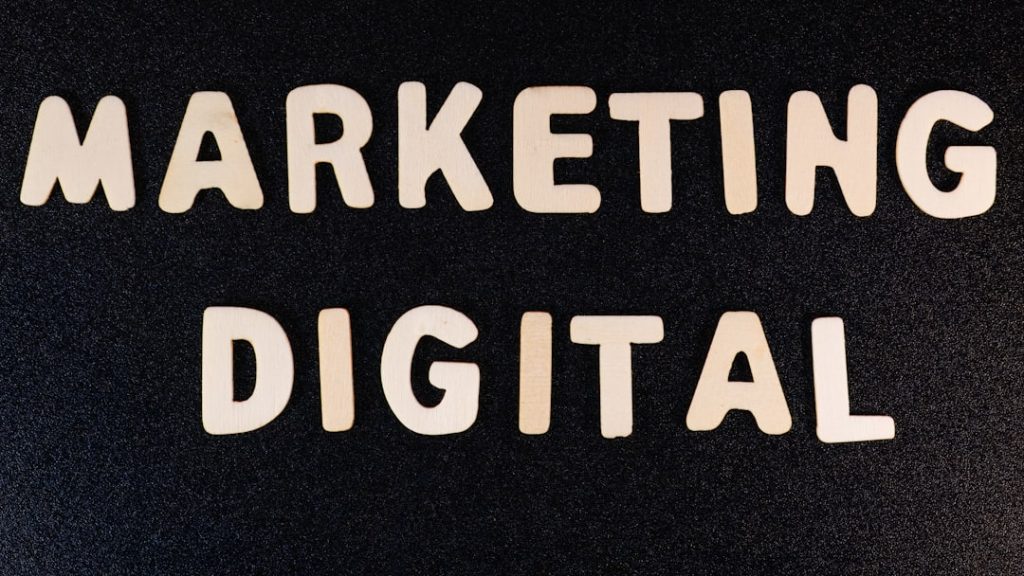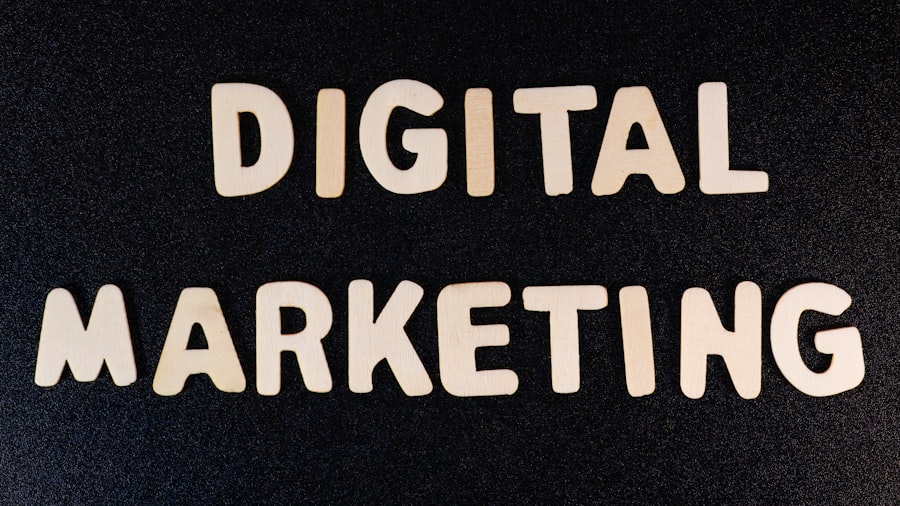In the rapidly evolving landscape of modern business, the role of a Digital Marketing Manager has become increasingly vital. As companies pivot towards digital platforms to reach their audiences, the need for skilled professionals who can navigate this complex environment is paramount. A Digital Marketing Manager not only understands the nuances of various online channels but also possesses the strategic acumen to leverage these platforms effectively.
This role is crucial in ensuring that businesses remain competitive, as digital marketing strategies can significantly influence brand visibility, customer engagement, and ultimately, revenue generation. Moreover, the digital marketplace is characterized by its dynamic nature, where consumer behaviors and preferences shift rapidly. A proficient Digital Marketing Manager is equipped to adapt to these changes, utilizing real-time data and insights to refine marketing strategies.
This adaptability is essential for businesses aiming to maintain relevance in an era where consumers are inundated with information and choices. By employing innovative digital marketing techniques, these managers can create tailored experiences that resonate with target audiences, fostering loyalty and driving conversions.
Key Takeaways
- A digital marketing manager plays a crucial role in today’s business environment by driving online brand presence and customer engagement.
- The responsibilities of a digital marketing manager include overseeing various digital channels, creating and implementing marketing strategies, and analyzing campaign performance.
- Data and analytics are essential tools for digital marketing managers to develop effective marketing strategies and make data-driven decisions.
- Multi-channel marketing campaigns are important for reaching target audiences across different platforms and maximizing brand exposure.
- Social media and content marketing are valuable tools for digital marketing managers to increase brand awareness and engage with customers.
Understanding the Responsibilities of a Digital Marketing Manager
The responsibilities of a Digital Marketing Manager are multifaceted and require a blend of creativity, analytical skills, and strategic thinking. At the core of their role is the development and execution of comprehensive digital marketing strategies that align with the overall business objectives. This involves conducting market research to identify target demographics, understanding their preferences, and determining the most effective channels for engagement.
A Digital Marketing Manager must also stay abreast of industry trends and competitor activities to ensure that their strategies are not only relevant but also innovative. In addition to strategy formulation, a Digital Marketing Manager is responsible for overseeing the implementation of various campaigns across multiple platforms. This includes managing content creation, social media engagement, email marketing initiatives, and search engine optimization efforts.
They must coordinate with creative teams to produce compelling content that captures the brand’s voice while also being optimized for search engines. Furthermore, they are tasked with monitoring campaign performance, analyzing results, and making data-driven adjustments to enhance effectiveness. This continuous cycle of planning, execution, and analysis is critical for achieving desired outcomes in a competitive digital landscape.
Leveraging Data and Analytics for Effective Marketing Strategies
Data and analytics play a pivotal role in shaping effective marketing strategies in today’s data-driven world. A Digital Marketing Manager must harness the power of analytics tools to gather insights about consumer behavior, preferences, and engagement patterns. By analyzing this data, they can identify trends that inform decision-making processes and optimize marketing efforts.
For instance, tools like Google Analytics provide valuable information about website traffic sources, user demographics, and behavior on-site, enabling marketers to tailor their strategies accordingly. Furthermore, leveraging data allows Digital Marketing Managers to segment their audience more effectively. By understanding different customer personas based on their interactions with the brand, they can create targeted campaigns that speak directly to specific groups.
This level of personalization not only enhances user experience but also increases conversion rates. For example, an e-commerce brand might analyze purchase history data to send personalized product recommendations via email, significantly improving the likelihood of repeat purchases.
Developing and Implementing Multi-Channel Marketing Campaigns
In an age where consumers interact with brands across various platforms, developing multi-channel marketing campaigns has become essential for maximizing reach and engagement. A Digital Marketing Manager must design campaigns that seamlessly integrate different channels such as social media, email, websites, and mobile applications. This approach ensures that the brand message is consistent and cohesive across all touchpoints, reinforcing brand identity and enhancing customer experience.
Implementing multi-channel campaigns requires meticulous planning and coordination. For instance, a successful campaign might begin with a teaser on social media to generate buzz, followed by an email blast that provides more detailed information about a product launch. Simultaneously, content marketing efforts can be employed through blog posts or videos that delve deeper into the product’s features and benefits.
By creating a unified narrative across channels, Digital Marketing Managers can guide potential customers through the buyer’s journey more effectively, ultimately leading to higher conversion rates.
Utilizing Social Media and Content Marketing for Brand Awareness
Social media platforms have emerged as powerful tools for building brand awareness and engaging with audiences in real-time. A Digital Marketing Manager must develop a robust social media strategy that not only promotes products or services but also fosters community engagement. This involves creating shareable content that resonates with followers while encouraging interaction through comments, shares, and likes.
For example, brands often leverage user-generated content by encouraging customers to share their experiences on social media using specific hashtags. Content marketing complements social media efforts by providing valuable information that positions the brand as an authority in its industry. A Digital Marketing Manager should oversee the creation of high-quality content such as blog posts, infographics, videos, and podcasts that address customer pain points or interests.
By delivering informative and engaging content consistently, brands can build trust with their audience and enhance their visibility in search engine results. This dual approach of utilizing social media for engagement while employing content marketing for education creates a holistic strategy for brand awareness.
Harnessing the Power of SEO and SEM to Drive Website Traffic
Search Engine Optimization (SEO) and Search Engine Marketing (SEM) are critical components of any digital marketing strategy aimed at driving website traffic. A Digital Marketing Manager must possess a deep understanding of both practices to effectively increase a brand’s online visibility. SEO involves optimizing website content to rank higher in organic search results through keyword research, on-page optimization, and link-building strategies.
By ensuring that a website is search-engine friendly, businesses can attract more organic traffic over time. On the other hand, SEM encompasses paid advertising strategies such as pay-per-click (PPC) campaigns that appear in search engine results. A Digital Marketing Manager must balance both SEO and SEM efforts to maximize reach.
For instance, while SEO builds long-term visibility through organic search rankings, SEM can provide immediate traffic boosts through targeted ads. By analyzing performance metrics from both channels, managers can allocate resources effectively—investing more in high-performing keywords or adjusting bids based on conversion rates.
Managing Email Marketing and Automation for Customer Engagement
Email marketing remains one of the most effective channels for nurturing customer relationships and driving engagement. A Digital Marketing Manager must develop targeted email campaigns that resonate with subscribers based on their preferences and behaviors. This involves segmenting email lists to ensure that recipients receive relevant content tailored to their interests—whether it be promotional offers, product updates, or educational resources.
Automation plays a crucial role in enhancing the efficiency of email marketing efforts. By utilizing automation tools, a Digital Marketing Manager can set up workflows that trigger emails based on specific actions taken by users—such as cart abandonment or newsletter sign-ups. This level of personalization not only improves engagement rates but also fosters a sense of connection between the brand and its customers.
For example, sending a follow-up email with a discount code after a cart abandonment can significantly increase the chances of conversion.
Building and Nurturing Relationships with Influencers and Partners
In today’s digital landscape, influencer marketing has gained traction as an effective strategy for reaching new audiences and enhancing brand credibility. A Digital Marketing Manager must identify relevant influencers within their industry who align with the brand’s values and target audience. Collaborating with influencers allows brands to tap into established communities and gain access to potential customers who trust these figures’ recommendations.
Nurturing these relationships goes beyond one-off collaborations; it involves building long-term partnerships that benefit both parties. A successful influencer campaign might include co-created content or exclusive promotions that engage followers while promoting the brand authentically. Additionally, fostering relationships with other businesses or partners can lead to mutually beneficial collaborations—such as joint webinars or cross-promotional campaigns—that expand reach and enhance credibility within the market.
Measuring and Analyzing Key Performance Indicators (KPIs) for Marketing Success
To gauge the effectiveness of digital marketing efforts, a Digital Marketing Manager must establish clear Key Performance Indicators (KPIs) that align with business objectives. These metrics provide valuable insights into campaign performance and overall marketing success. Common KPIs include website traffic, conversion rates, click-through rates (CTR), customer acquisition costs (CAC), and return on investment (ROI).
By regularly monitoring these indicators, managers can assess what strategies are working and where adjustments are needed. Analyzing KPIs also enables Digital Marketing Managers to make informed decisions about resource allocation and future campaign planning. For instance, if data reveals that certain channels yield higher conversion rates than others, managers can prioritize those channels in upcoming campaigns.
Additionally, A/B testing different elements—such as subject lines in emails or ad copy—can provide insights into what resonates best with audiences, allowing for continuous optimization of marketing strategies.
Staying Ahead of Industry Trends and Innovations in Digital Marketing
The digital marketing landscape is characterized by rapid changes driven by technological advancements and shifting consumer behaviors. A successful Digital Marketing Manager must stay informed about emerging trends and innovations within the industry to remain competitive. This includes keeping abreast of new tools, platforms, algorithms changes from search engines or social media networks, and evolving best practices.
Participating in industry conferences, webinars, and networking events can provide valuable insights into upcoming trends while fostering connections with other professionals in the field. Additionally, subscribing to industry publications or following thought leaders on social media can help managers stay updated on new strategies or technologies that could enhance their marketing efforts. By proactively embracing change rather than reacting to it, Digital Marketing Managers can position their brands at the forefront of innovation.
Collaborating with Cross-Functional Teams for Integrated Marketing Efforts
Collaboration across departments is essential for executing integrated marketing efforts that align with overall business goals. A Digital Marketing Manager must work closely with teams such as sales, product development, customer service, and design to ensure cohesive messaging and branding across all touchpoints. This collaboration fosters a unified approach where all departments contribute to achieving common objectives.
For example, insights from the sales team regarding customer feedback can inform digital marketing strategies by highlighting areas for improvement or new opportunities for engagement. Similarly, collaborating with product development teams allows marketers to create campaigns that effectively showcase new features or products based on customer needs. By fostering open communication between departments and leveraging each team’s expertise, Digital Marketing Managers can create comprehensive strategies that drive success across the organization.
If you are a digital marketing manager looking to improve your skills and stay up-to-date with the latest trends in the industry, you may want to check out this article on uprankerz.com. This article provides valuable insights and tips on how to effectively manage digital marketing campaigns and drive results for your business. It is a must-read for any digital marketing professional looking to enhance their knowledge and expertise in the field.


